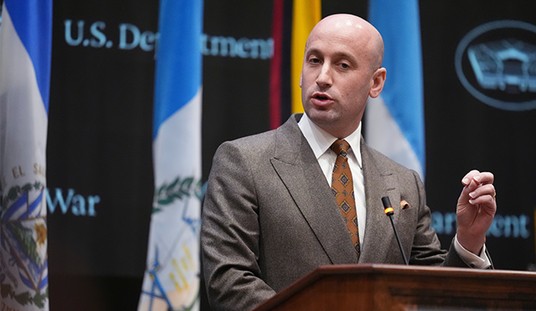Time travel is one of the most popular themes in science fiction. I've never dabbled in it myself, at least not yet. In our current understanding of physics, travel into the past is impossible. We can time-travel into the future, and not just theoretically. You and I are doing it right now, at the rate of one second per second. Travel somewhere at a sizable portion of the speed of light and you'll do it faster; that's called time dilation.
Now, though, some physicists think it may be possible, one day, to travel into the past. Color me skeptical. But I'm a biologist, not a physicist.
Up until recently, physicists believed that time travel to the past was impossible because it required unusual matter or extreme warping of spacetime. However, physicist John D. Norton has developed a new model based on Einstein's theory of general relativity that shows time travel is mathematically possible.
His model does not rely on strange matter or intense space-time distortion, but uses a simple space-time shape that allows paths to loop back in time. This work suggests that time travel could occur under more ordinary physical conditions than previously thought.
There's a classic problem, called the grandfather paradox; what happens if you go back in time and murder one of your forebears? Well, they have an answer for that as well:
The classic understanding of time travel centers on a fundamental problem: paradoxes. If travelers could alter even minor details of the past, the cascading consequences would either rewrite the present or eliminate the traveler's own existence — the infamous grandfather paradox. This seemingly insurmountable obstacle led physicist Stephen Hawking to propose his Chronology Protection Conjecture, which essentially argues that the laws of physics themselves forbid backward time travel by preventing the formation of closed timelike curves.
However, groundbreaking research by Dr. Fabio Costa and Germain Tobar at the University of Queensland challenges this assumption. They've developed a mathematical model showing that closed timelike curves do not automatically create paradoxes. Their revolutionary model suggests that while time travelers can move and act freely in the past, the universe itself maintains consistency—events would self-adjust to prevent any logical contradictions from occurring.
OK, now that's all some heavy, big-brain stuff. But that's not what interests me; what interests me is this:
What if you could go back in time?
First, when would you go? For me, that's easy; I want to go back deep into prehistory. Granted, there are times in the planet's history when you wouldn't be able to breathe the air. Don't go back to the Silurian without breathing gear, and pack a lunch; there was as yet little or no life on land. Going to the late Permian? It's going to be hot - and not just temperature-wise. There's a chance you might run across a rhinoceros-sized gorgonopsid, so take a rifle. A big rifle. The Cretaceous? Ditto. In fact, the conditions in the past varied a lot. Most time periods you might wander to would be warmer places than now, as I've written many times.
Second, if this ever became possible, what limits should be imposed? I can see a good argument for not allowing travel into historic times; too many people would immediately get ideas about whacking Adolf Hitler in Munich in 1919, or taking out the young Napoleon Bonaparte. I don't care what the physicists say; that just seems like there's too big a risk of seriously tangling up history. As far as dangerous times like those above, my knee-jerk reaction is to label them "no restrictions." If you get eaten by an allosaur in the late Jurassic, well, on your head be it - or on the allosaur's.
Third and finally, what purposes would be acceptable? Should this be limited only to serious researchers? I know a few paleontologists who would give their left... anything, to go back to the Jurassic, or the Oligocene, to see beasts in the flesh that they only know through fossils. I would hope other things would be allowed, because I want to go on a safari for woolly mammoths or a bull T-rex.
Of course, none of this is science. Not yet. It's not even a hypothesis. It's just a thought experiment. But it's a fun one!
See Also: Better Science, Better Policy - the Scientific Method Returns to America
Expert Claims We May One Day Be Able to Upload Your Brain. But Should We?
This will almost certainly never be possible. It would require an understanding of physics that we not only lack, but our current understanding of the laws of the universe tells us is impossible. But when our nation was founded, the great scientific minds of the time, like Benjamin Franklin, may well have told you that humanity would never achieve powered flight. My grandfathers, born in 1894 and 1896, as young men, would have believed the capacities of a modern smartphone to be impossible. Arthur C. Clarke's three laws apply here:
- When a distinguished but elderly scientist states that something is possible, he is almost certainly right. When he states that something is impossible, he is very probably wrong.
- The only way of discovering the limits of the possible is to venture a little way past them into the impossible.
- Any sufficiently advanced technology is indistinguishable from magic.
For the moment, it's just a fun thought experiment. But in two hundred years-or twenty years? Maybe we could get Elon Musk's people on this.













